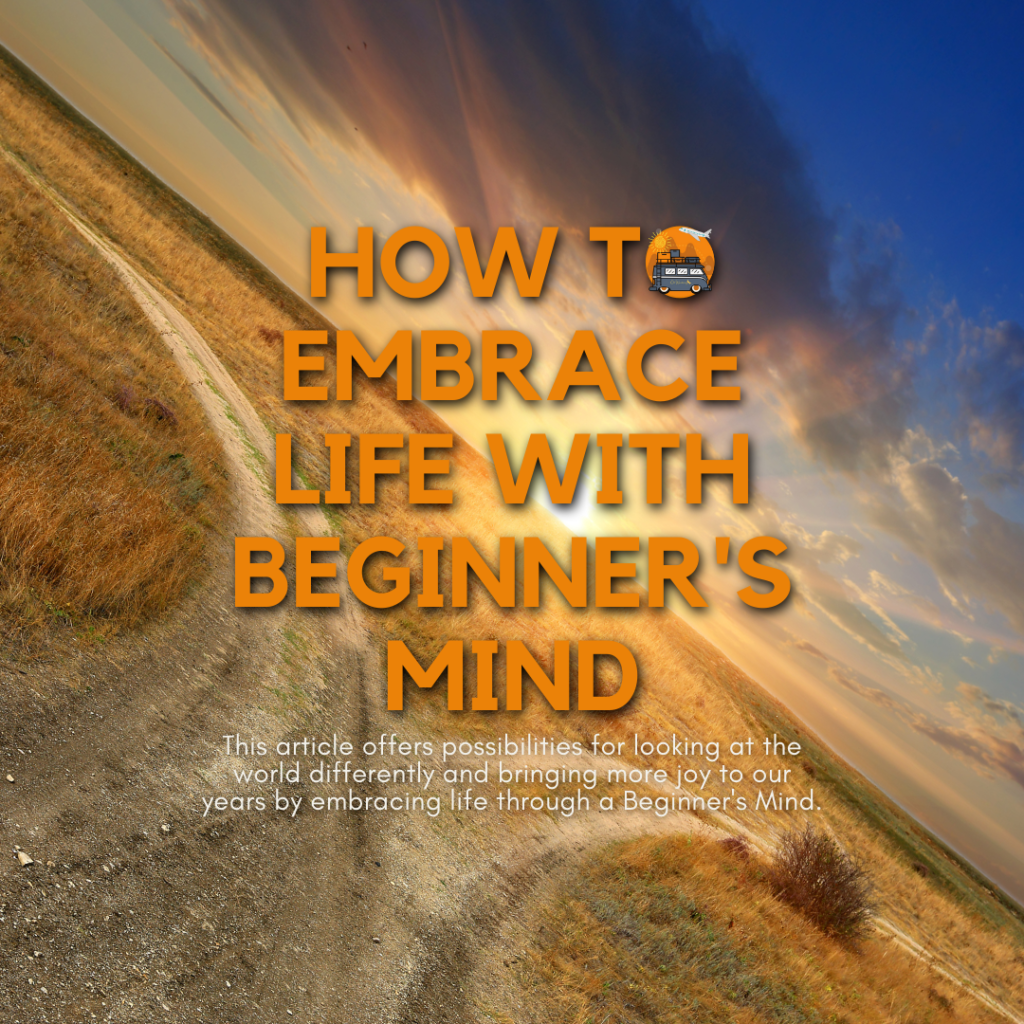Beginner’s Mind (aka Shoshin) is a term used to describe someone utterly new to any task, event or course. Whenever we are beginners doing something for the first time, we aren’t sure what we’re doing.
What is Beginner's Mind?
At the beginning of something new, we have no preconceived notions of how things should work or expectations of what might happen. We just get to be open to the experience letting it unfold.
As a beginner, we will find a world of infinite possibilities and curiosity by exploring something with fresh eyes because we don’t quite yet understand what is possible.
To live life with a Beginner’s Mind isn’t something we’ve probably done since we were kids, though. Can you remember how wonderful it felt to let our imaginations flow, free to ask questions and wanting to know more?
As we get older, we lose touch with the essence of this Beginner’s Mind concept that once came so naturally through external programming by our parents, schools, the media and our reactions.
But I promise we will find exciting and creative ways to complete any task if we allow it and open our minds to new information or be curious about a different outcome to something routine.
This article offers possibilities for looking at our world differently to bring more joy to our years, embracing life through a Beginner’s Mind.
Within a Beginner's Mind, there are many possibilities, and in the expert's Mind, there are few; what we call' I' is just a swinging door, which moves when we inhale and exhale. The world is its own magic.
Shunryu Suzuki

The Tragedy of Knowing
Most people spend their whole life aspiring to grow more experienced in a type of work, a specialist on a topic or skilled in their occupation. Why would we drop what we currently know about life – even for a second? Isn’t it better to understand and know what we are doing?
Practicing a Beginner’s Mind can contradict that path, and the approach is sometimes complicated until we’ve tried it. Shunryu Suzuki teaches that knowing how things work can prevent us from experiencing what is before us. He says, “When your Mind is blank, it will be open to everything. In a Beginner’s Mind, there are many possibilities, and in the expert’s Mind, there are few.”
In essence, the tragedy of knowing is the idea that, as we become more familiar with a topic, we cannot explain it well to someone who doesn’t understand.
Think about a time when you may have had to explain a process to a coworker, for example. The task you do day in and day out is so routine, and every detail repeated, so teaching that process to someone else becomes virtually impossible.
The world was filled with magical events.
Whenever we know how something works, it loses its magic, which is the other paradox of knowing. Remember back to your childhood when you might have thought someone tying their shoes was an act of wonder or when we helped in the kitchen only to see the cookie dough turn into cookies as we peered through the oven window. How did that just happen?

Or how about knowing the dark closet or basement was absolutely a door to the worst places ever or the old stories of a ferry, rabbit and a jolly fat man with flying reindeer sneaking into the house to leave candy and gifts twice a year?
Eventually, though, the magic was stripped away bit by bit, revealing the simple truth about how things worked.
I believe the world is grand and majestic, full of beauty and wonder. Nurturing a Beginner’s Mind allows us to see it with new understanding. Some benefits include:
- Infinite Creativity: Doing things the same way over time create ingrained thinking habits – or grooves. When we always do what we’ve always done, we get the same outcomes we’ve always gotten. Instead, if we intentionally face a problem with a Beginner’s Mind, brand-new viewpoints open up and new opportunities not previously considered appear.
- More Profound Gratitude: We have a more profound sense of appreciation for what we might take for granted by visiting your life from a fresh perspective.
- More Fun & Playfulness: Can you remember when life got so stressful, heavy and maybe even boring? Practice living life with a Beginner’s Mind helps us get reacquainted with the exciting aspects of everything we do (even the boring will come to life). Be playful and curious, remembering why we started doing them in the first place!
We can find new magic and remember to feel the amazement of seeing something new and wonderful. It can be big stuff, like learning there really is a gateway to hell in Turkmenistan or that an erupting volcano produces lightning.
Or small pleasures we may completely overlook when we’re not paying attention; the first taste of a ripe peach just in season, an enthusiastic hug from a dear friend or your child, a new hairstyle that gets compliments from everyone you meet, or you are wishing for “rockstar” parking at the very crowded grocery store on a Saturday, and you get it, or when you remember the fun you had with a friend you went to school with, and they call or message you out of the blue.
There are many small, magical moments in our lives; all we need to be is open to them.

A Beginner's Mind In Practice
Give yourself a beautiful gift by staying in the present moment, experiencing life as a beginner. Practice the following ideas to cultivate a Beginner’s Mind.

- Avoid Prejudgment. Don’t assume you know how things should look based on past experiences.
- Recognize when you are placing expectations on an outcome, and turn them around, asking, “What would this look like if I did the opposite of what I would normally do?”
- Proceed slowly. Experience every step as if you’ve never done such a thing before. When we slow down our movements, our Minds will follow.
- Become fully present to the practice and imagine. Be open to understanding in a new way by allowing yourself to experience the event as if you know what it is.
Ok, Time To Be Curious
At your next breakfast, start the activity of eating as if it was your very first meal – ever! Everything is new, and you don’t know what to expect.
Really see at the food, bowl and spoon; see the details and notice the texture. Take a bite, keeping it in your mouth for a bit, moving the food around and along your tongue. Chew it until the food has broken entirely down.
As you start to swallow, do so slowly and notice how it feels, passing over the back of the throat and into your stomach.
Then, take the second bite and, slowly, do the same things, see what else you can experience? What did you miss with the first bite?
Now, do this along the way during the rest of your day. Walk slower. Without judgment or stories, notice people’s expressions as they come into view. Listen to sounds around you. Look at each of your activities as someone wholly new to them.
So, we might ask, “why to bother at all?” Accepting the jaded and pessimistic part of life, believing there’s nothing new anyway and nothing left to surprise us, well, that’s one way to live a life of predictable comfort.
But is that really living? Instead, what if our purpose is to be curious and explore the world around us instead of being locked into familiar and comfortable tasks without wonder, surprise, or magic?
Comment below if you’ve learned anything new after practicing with a Beginner’s Mind.

Share this post

Kirsti Out Wandering aspires to illustrate well-being in mind, body & spirit, giving unconditional love to self and others, and pursuing all of the wild possibilities life serves up while living full-time from a sprinter van.
Follow along! Be sure to sign up for my monthly newsletter filled with stories and tips on travel, exploring, van-living, self-care & yoga, photography and life on the road.

